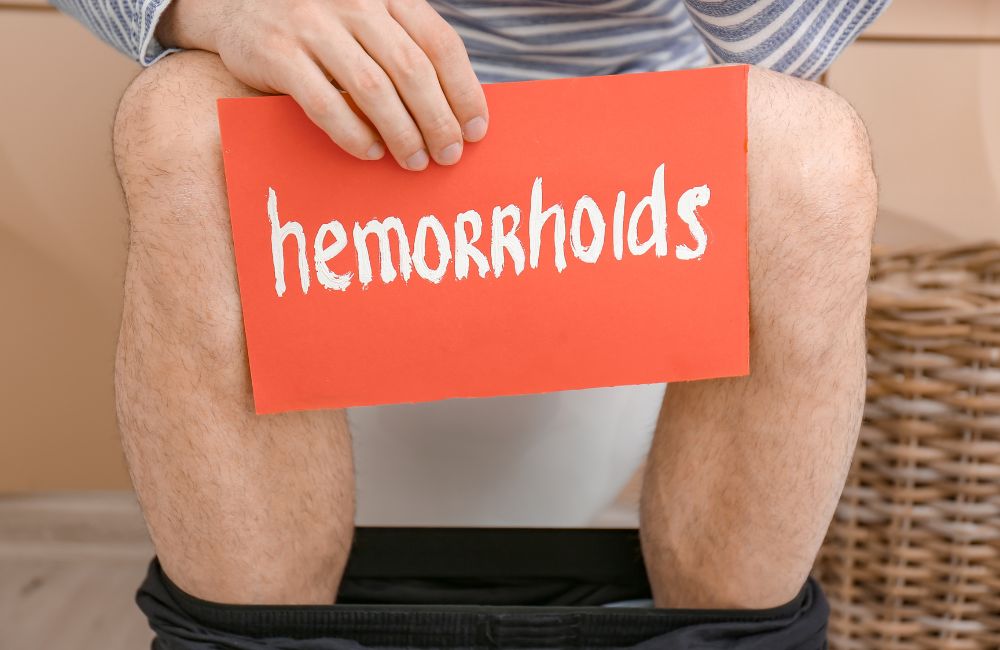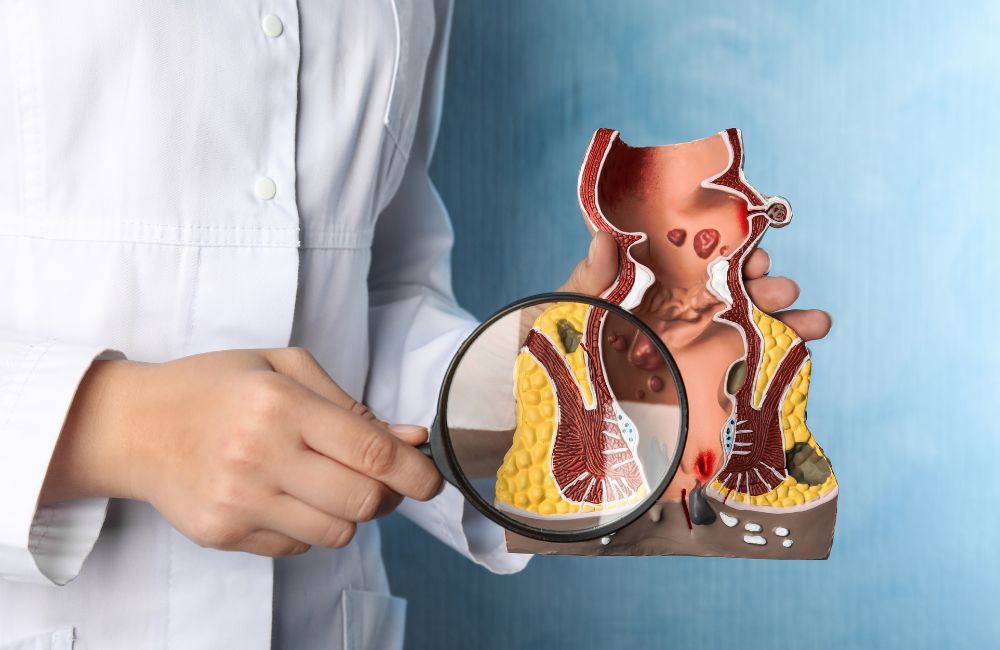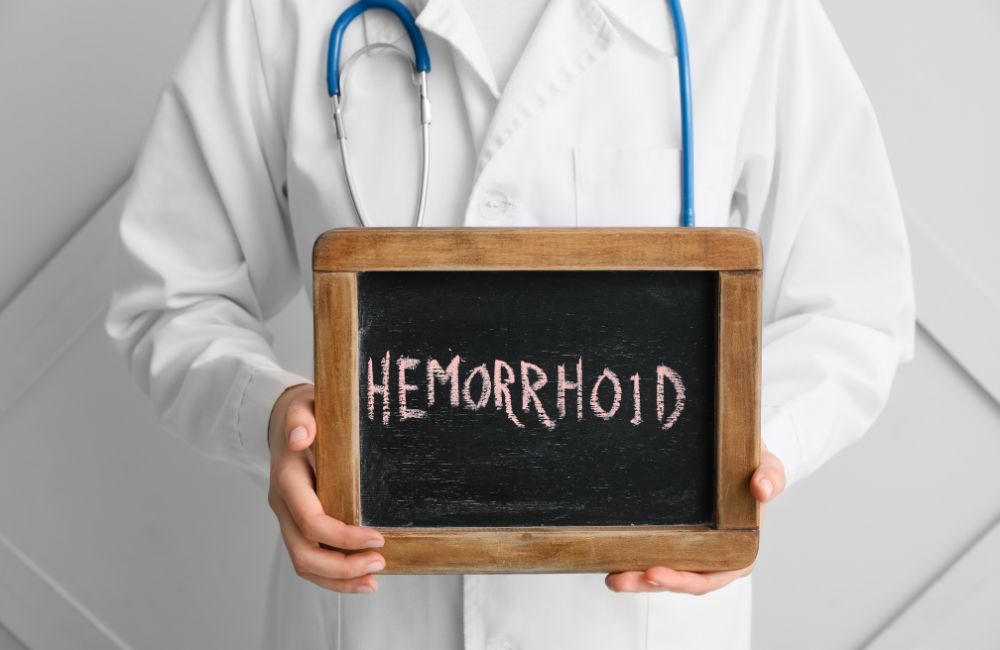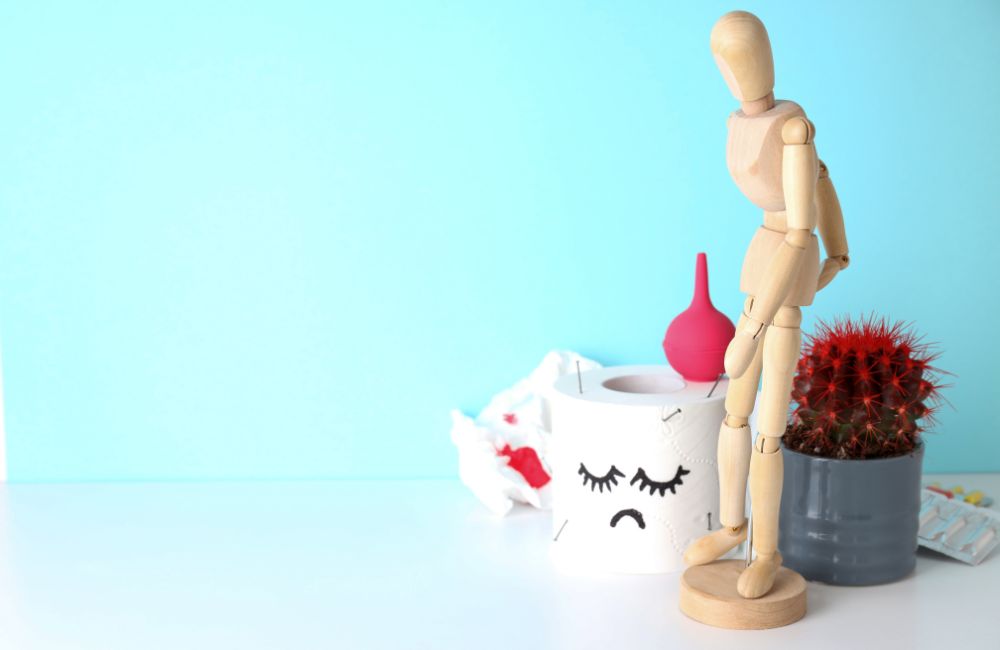
Hemorrhoids, often referred to as piles, are swollen veins in the lower rectum and anus. They are similar to varicose veins and can develop inside the rectum (internal hemorrhoids) or under the skin around the anus (external hemorrhoids). This common condition causes discomfort, itching, pain, and bleeding during bowel movements. While many find relief through home remedies, severe cases may require medical intervention. Knowing when to seek urgent care in Fairfield, CT, can help manage symptoms effectively and prevent complications.
Key Takeaways
What Are Hemorrhoids?
8 Home Remedies for Hemorrhoids
1. Warm Sitz Baths
2. Aloe Vera
3. Witch Hazel
4. Cold Compresses
5. Over-the-Counter Ointments and Creams
6. Fiber-Rich Diet
7. Hydration
8. Regular Exercise
When to Seek Urgent Care in Fairfield, CT
Preventive Measures for Hemorrhoids
Frequently Asked Questions
Seek Professional Help at DOCS Urgent Care & Primary Care Fairfield

Hemorrhoids are swollen blood vessels that form in the lower rectum and anus. The estimated global prevalence of hemorrhoids in the general population is approximately 4.4%. They can be categorized into two types:
Several factors can contribute to the development of hemorrhoids, including:
Common symptoms of hemorrhoids include:
Many people find relief from hemorrhoid symptoms through simple home remedies. Here are eight effective remedies:
A warm sitz bath involves sitting in a few inches of warm water several times a day, especially after bowel movements. This can help reduce inflammation, relieve pain, and improve blood flow to the affected area.
The warm water helps relax the muscles around the anus and promotes better blood flow, which can speed up the healing process.
Aloe vera has anti-inflammatory properties that can help soothe and reduce the discomfort of hemorrhoids. Its healing effects are well-documented and widely used for various skin conditions.
The natural compounds in aloe vera help reduce inflammation and provide a cooling effect, which can alleviate itching and burning sensations.
Witch hazel is a natural astringent that can help reduce swelling and inflammation. It is commonly found in liquid form and can be applied directly to the hemorrhoids.
Witch hazel’s astringent properties help shrink swollen tissues and provide relief from itching and irritation.
Applying cold compresses to the hemorrhoids can help reduce swelling and numb the area, providing immediate pain relief.
The cold temperature constricts blood vessels, reducing inflammation and pain. Ensure you do not apply ice directly to the skin to avoid frostbite.
Several over-the-counter products can provide relief from hemorrhoid symptoms. These include creams, ointments, and suppositories that contain ingredients like hydrocortisone or witch hazel.
These products can reduce inflammation, relieve pain and itching, and help shrink the hemorrhoids.
Increasing your fiber intake can help prevent constipation and straining during bowel movements, which are common causes of hemorrhoids. A high-fiber diet can soften stools and make them easier to pass.
Fiber adds bulk to the stool, making it easier to pass and reducing the need for straining.
Staying well-hydrated is crucial for maintaining digestive health and preventing constipation. Drinking plenty of water helps keep stools soft and easier to pass.
Proper hydration helps maintain the body’s overall health and prevents the hard, dry stools that can lead to hemorrhoids.
Regular physical activity can help prevent constipation and reduce the pressure on veins, lowering the risk of developing hemorrhoids.
Exercise promotes healthy bowel function and reduces the likelihood of constipation, a common cause of hemorrhoids.

While home remedies can be effective for many people, there are situations when it’s crucial to seek urgent care in Fairfield, CT. Here are some signs that indicate the need for professional medical help:
When you visit urgent care in Fairfield, CT, the medical team will perform a thorough examination to assess your condition. This may include:
Based on the assessment, the healthcare provider at urgent care in Fairfield, CT, may recommend one or more of the following treatments:

Taking preventive measures can help reduce the risk of developing hemorrhoids and prevent recurrence. Here are some long-term strategies:
Yes, hemorrhoids can go away on their own, especially with lifestyle changes and home remedies. However, severe cases may require medical treatment.
No, you should not try to push a hemorrhoid back in without medical advice. Doing so can cause further irritation and damage. Consult a healthcare professional for guidance.
External hemorrhoids do not fall off, but internal hemorrhoids can sometimes shrink and fall off on their own. If a hemorrhoid persists, seek medical attention.
Stage 4 hemorrhoids are prolapsed and cannot be pushed back in. They often require surgical intervention due to their size and severity.
Sitting in a warm sitz bath can help relieve hemorrhoid discomfort. Additionally, lying on your side with a pillow between your legs can reduce pressure on the affected area.

If you’re experiencing persistent or severe hemorrhoid symptoms, don’t wait for relief. Visit DOCS Urgent Care & Primary Care Fairfield for expert medical evaluation and treatment. Our experienced healthcare professionals are here to provide the care you need to alleviate your discomfort and prevent complications.
Schedule your appointment today and take the first step towards better health and comfort!


During this surge in COVID-19 cases, our primary focus is meeting the high demand for tests, and we are seeing higher than usual wait times. This means we are unable to answer most phone calls. Please know that our teams are working very hard during this time to care for as many patients as safely as possible. Please click the button below for answers to common questions. We appreciate your understanding.